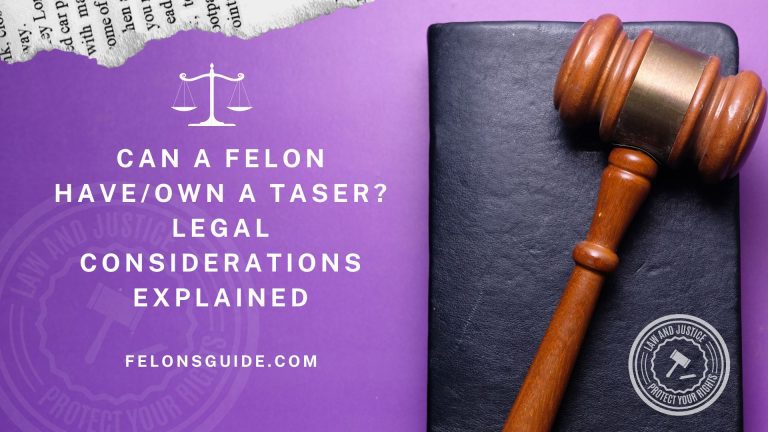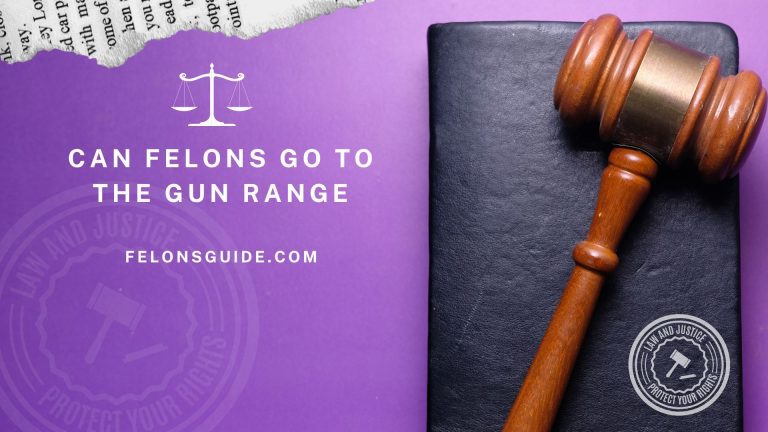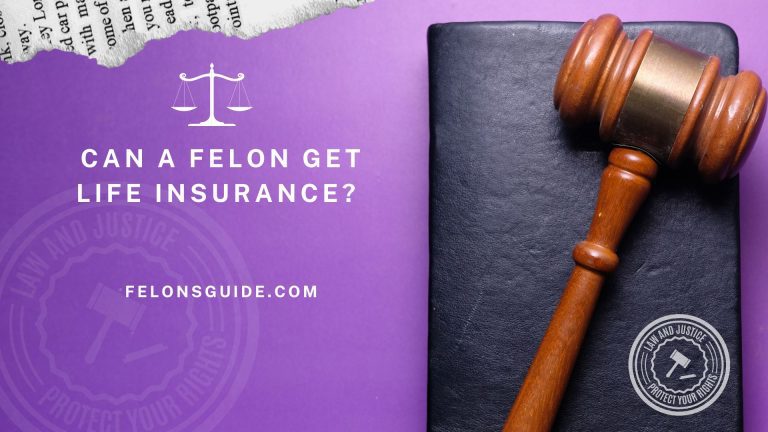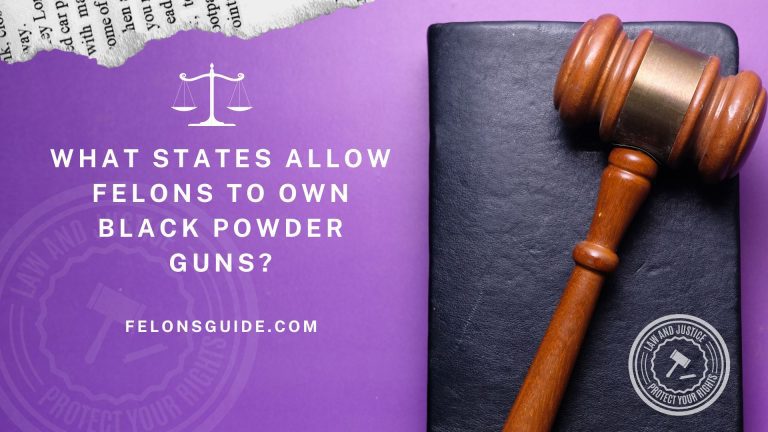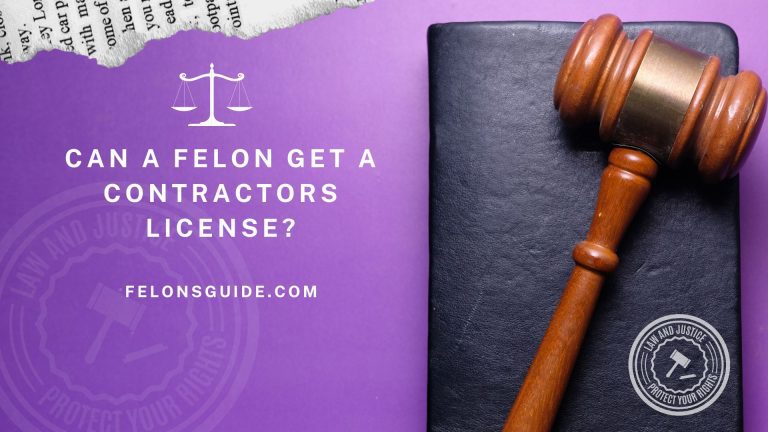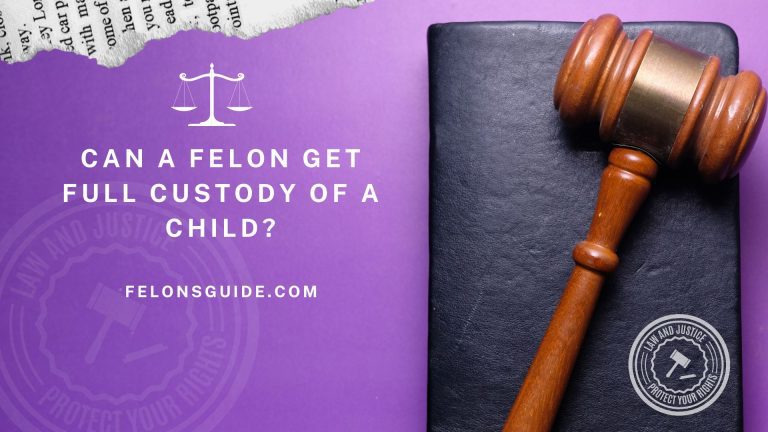Can a Felon Get an FHA Loan? Explore the Possibilities
People with criminal records often face difficulties in getting loans due to their criminal history. A common question is whether a felon can get a Federal Housing Administration (FHA) loan. In this article, we will discuss the eligibility criteria for an FHA loan and whether a felon can qualify for it.
What is an FHA loan?
An FHA loan is a form of mortgage that has insurance coverage provided by the Federal Housing Administration. These loans are offered by FHA-approved lenders and are intended to assist individuals who are purchasing their first home or those with modest to moderate earnings. The underlying aim of FHA loans is to enhance accessibility to homeownership for individuals who may not meet the criteria for conventional loans.
Also Read: Can a Felon Vote in Puerto Rico? The Answer May Surprise You
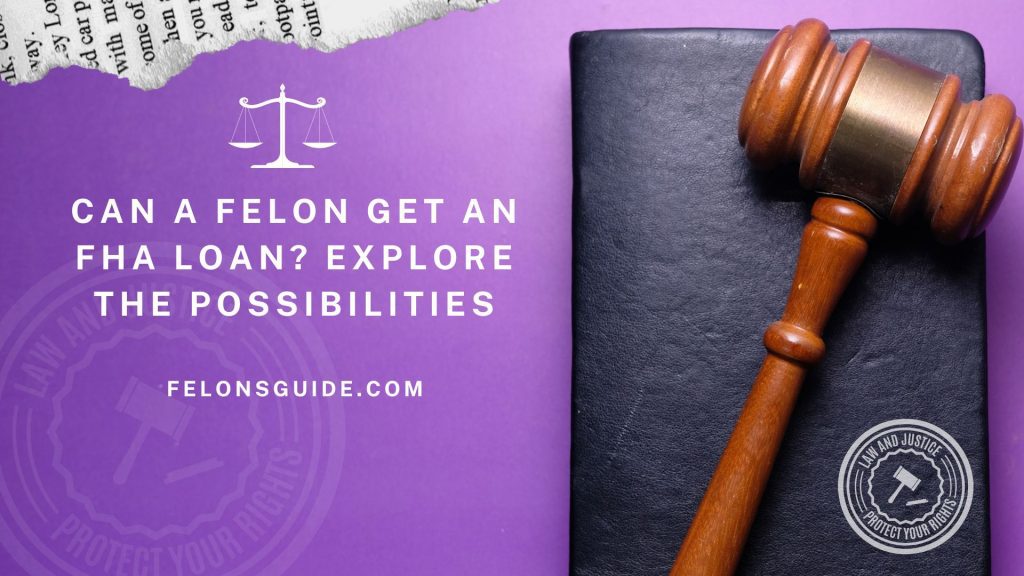
Eligibility criteria for an FHA loan
To qualify for an FHA loan, a borrower must meet certain eligibility criteria, including:
Credit score
The minimum credit score requirement for an FHA loan is 580. However, borrowers with a credit score between 500 and 579 may still qualify for an FHA loan, but they will need to make a higher down payment.
Down payment
The minimum down payment requirement for an FHA loan is 3.5% of the purchase price of the home. However, borrowers with a credit score between 500 and 579 will need to make a down payment of at least 10%.
Employment history
Borrowers must have a steady employment history or have worked for the same employer for the past two years.
Debt-to-income ratio
Borrowers must have a debt-to-income ratio of 43% or less. This means that their total monthly debt payments cannot exceed 43% of their monthly income.
Also Read: Can a Husband and Wife Have a Gun if One is a Felon?
Can a felon get a FHA loan?
There is no specific rule that prohibits felons from getting an FHA loan. However, FHA lenders are required to conduct a criminal background check on all borrowers. The lender must also consider the nature and severity of the crime, the length of time since the conviction, and whether the borrower has a history of criminal activity.
How does a criminal record affect the FHA loan application process?
A criminal record can affect the FHA loan application process in several ways:
Denial of the loan
If a borrower has a criminal record, the FHA lender may deny the loan application if they determine that the borrower is a risk to the lender or to the community.
Higher interest rates
If a borrower has a criminal record, they may be charged a higher interest rate on their FHA loan. This is because lenders consider borrowers with criminal records to be a higher risk.
Longer waiting period
If a borrower has been convicted of a crime, they may be required to wait a certain amount of time before they can apply for an FHA loan. The waiting period varies depending on the nature and severity of the crime.
Conclusion
In conclusion, there is no specific rule that prohibits felons from getting an FHA loan. FHA lenders must perform a thorough investigation into the criminal history of loan applicants, and the severity and nature of the offense can significantly impact the loan application procedure. It is imperative for individuals with criminal records to collaborate with an FHA-approved lender who can serve as a reliable source of guidance throughout the application process and provide them with a comprehensive understanding of their available options.
